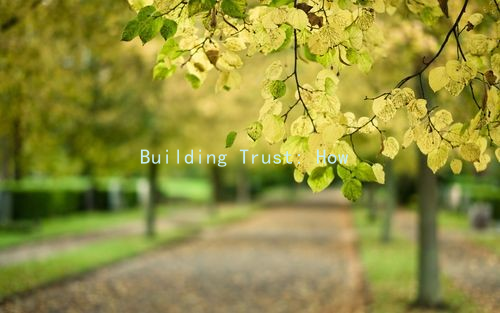Building Trust: How Scientific Insights Can Strengthen Your Relationship
Building Trust: How Scientific Insights Can Strengthen Your Relationship
In the intricate tapestry of relationships, trust serves as one of the most vital threads. Its the cornerstone of emotional intimacy and security, yet it can be challenging to cultivate and maintain. Recent scientific research sheds light on effective strategies for building and reinforcing trust in romantic relationships. By understanding and applying these insights, individuals can significantly enhance their relational dynamics.
1. The Importance of Vulnerability
Vulnerability often carries a negative connotation, yet it is an essential ingredient for building trust. When partners share their fears, insecurities, and dreams, they create a deeper emotional connection. One study published in the Journal of Social and Personal Relationships highlights that couples who engage in open conversations about their feelings report higher levels of relationship satisfaction. Consider starting a dialogue where both partners can express their thoughts candidly, providing a safe space for vulnerability.
2. Consistency is Key
Trust is built over time through consistent actions. According to research from the University of Denver, “predictability” can significantly influence trust levels in relationships. This doesn’t mean being mundane; rather, it involves showing reliability in both words and actions. Making and keeping promises—big or small—demonstrates dependability. Establish routines or traditions that reinforce your commitment to each other; this can help create a stable foundation for your relationship.
3. The Role of Communication
Effective communication is paramount for building trust. Studies indicate that active listening, where one truly hears and reflects back what the other partner says, fosters understanding and connection. Avoid interrupting or formulating a response while the other is speaking. Instead, show genuine interest by asking questions and validating feelings. Regular check-ins about each others emotional states can also pave the way for healthy discussions and reduce misunderstandings.
4. Embrace Transparency

Transparency fosters an environment of openness where partners feel secure in sharing thoughts and feelings. Research by the University of California suggests that being open about one’s thoughts, feelings, and even past experiences can strengthen bonds between partners. This doesn’t imply laying bare every detail of your life; rather, it’s about sharing relevant information that can enhance understanding. Encourage discussions about personal history, goals, and fears, thereby fostering an atmosphere of trust.
5. Conflict Resolution Strategies
How couples handle conflicts can significantly impact trust levels. According to findings from the Gottman Institute, the manner in which partners navigate disagreements can either erode or reinforce trust. Employing constructive conflict resolution techniques—such as focusing on solutions rather than blame, and using “I” statements to express feelings—can prevent misunderstandings and build interconnectedness. Practicing empathetic responses during disputes can help to validate each partner’s feelings, contributing to a positive resolution.
6. Cultivating Positive Interactions
Frequent positive interactions can buffer against the inevitable stresses and negative moments in a relationship. Research indicates that healthy relationships often have a ratio of five positive interactions for every negative one. Engage in activities that bring joy and connection, whether it’s a shared hobby, date nights, or simple acts of kindness. Celebrating each other’s successes and providing support during tough times fosters a positive atmosphere that reinforces trust.
7. Trusting the Process
Lastly, it’s crucial to remember that building trust is an ongoing process. According to psychologist Dr. John Gottman, trust is not merely a feeling; it’s also an actionable commitment that requires patience and effort. Accept that trust may fluctuate and that rebuilding it after it’s been damaged takes time and dedication. Be proactive in nurturing the relationship, knowing that both partners play a crucial role in cultivating a trusting and harmonious environment.
In conclusion, understanding and leveraging scientific insights into trust can significantly strengthen romantic relationships. By embracing vulnerability, ensuring consistency, fostering open communication, practicing transparency, employing constructive conflict resolution, cultivating positive interactions, and recognizing the ongoing nature of trust-building, partners can weave a resilient and fulfilling bond that withstands the test of time. Remember, trust is not just a belief in each other; it’s an intentional practice that can lead to deeper love and connection.





